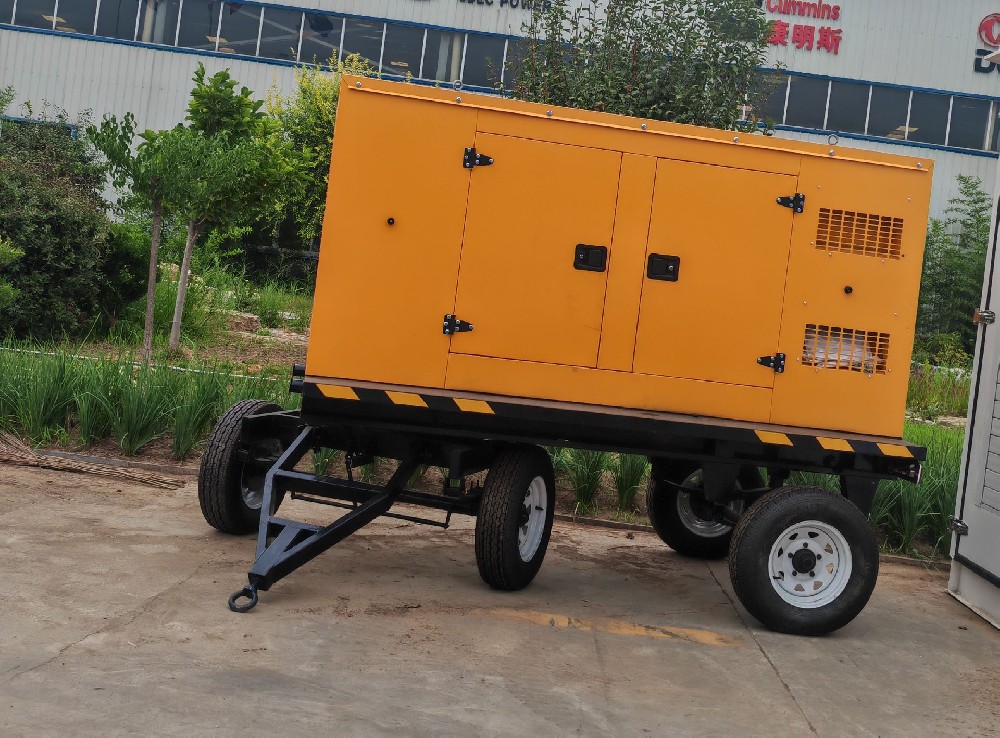Energy Efficiency and Emission Reduction: High-Performance Diesel Generator Sets Gain Popularity
Release time:2025-10-03 Click:15
As global energy demands rise and environmental regulations tighten, energy efficiency and emission reduction have become key trends in the power generation industry. High-performance diesel generator sets are increasingly favored for their ability to deliver reliable power while minimizing fuel consumption and environmental impact. These generators combine advanced engineering, fuel-efficient engines, and emission control technologies to meet operational and ecological requirements.
1. The Trend Toward Energy Efficiency and Emission Reduction
Modern energy landscapes prioritize sustainability, cost efficiency, and regulatory compliance. Diesel generators, traditionally valued for reliability, are now expected to reduce fuel consumption, lower greenhouse gas emissions, optimize performance, and integrate with renewable energy systems. High-efficiency diesel generator sets combine robust performance with innovative technologies that reduce environmental impact without sacrificing power output.
2. Advantages of High-Efficiency Diesel Generators
Energy Saving: Advanced engines achieve higher thermal efficiency and lower fuel consumption.
Low Emissions: Incorporates exhaust after-treatment systems to meet environmental standards.
Reliable Performance: Continuous operation under various load conditions with minimal maintenance.
Cost Efficiency: Reduced fuel usage and operational expenses lead to lower total cost of ownership.
Flexibility: Suitable for industrial, commercial, residential, and emergency power applications.
Durability: Designed for long-term, heavy-duty use with vibration control and thermal management.

3. Applications of High-Efficiency Diesel Generator Sets
Industrial Facilities: Backup and primary power for manufacturing, processing, and production lines.
Commercial Buildings: Continuous supply for offices, data centers, and retail complexes.
Residential Communities: Reliable energy backup for uninterrupted home operations.
Emergency Response: Power supply for hospitals, disaster relief, and temporary shelters.
Remote Locations: Off-grid and rural areas where grid power is unavailable or unstable.
Hybrid Energy Systems: Combine with solar or wind power to reduce overall fuel consumption and emissions.
4. Key Features of Modern High-Efficiency Diesel Generators
Fuel-Efficient Engines: Optimize combustion for higher energy output per liter of fuel.
Advanced Cooling Systems: Maintain performance and engine longevity under continuous operation.
Emission Control Technology: Low-NOx, low-particulate filters, and catalytic converters reduce environmental impact.
Smart Control Panels: Monitor operational parameters, performance, and maintenance schedules remotely.
Noise Reduction: Acoustic enclosures minimize sound impact for urban or residential use.
Modular Design: Parallel operation allows scalability for large-scale energy requirements.
5. Frequently Asked Questions (FAQs)
Q: How do high-efficiency diesel generators save energy?
A: They use advanced engine design and optimized fuel combustion, reducing fuel consumption while maintaining stable output.
Q: Are these generators environmentally friendly?
A: Yes, they feature emission control technologies and comply with strict international environmental regulations.
Q: Can high-efficiency diesel generators operate continuously for long periods?
A: Yes, they are designed for heavy-duty, long-term operation with proper maintenance.
Q: Can they integrate with renewable energy systems?
A: Absolutely. They can work in hybrid configurations with solar, wind, or battery storage to minimize fuel use.
Q: Are these generators more expensive upfront than standard diesel models?
A: Initial investment may be higher, but long-term fuel savings, durability, and environmental compliance justify the cost.
6. Benefits for Users and Businesses
Reduced Operational Costs: Lower fuel consumption and maintenance lead to significant savings.
Sustainability: Compliance with environmental regulations improves corporate social responsibility.
Reliable Power Supply: Stable energy ensures uninterrupted operations.
Scalability: Parallel operation supports projects of varying sizes.
Enhanced Reputation: Adoption of eco-friendly technologies aligns with green initiatives and public expectations.
7. Market Trends and Innovations
Hybrid Generator Systems: Integration with solar, wind, and energy storage for greener operation.
Smart Monitoring and IoT Integration: Real-time operational data and predictive maintenance improve efficiency.
Fuel Optimization Technologies: Engines designed for higher thermal efficiency and lower consumption.
Noise Reduction Features: Acoustic panels and vibration control for urban deployment.
Global Adoption: Increasing demand in energy-intensive industries, urban residential areas, and disaster preparedness projects.
8. Challenges and Solutions
Challenge: Balancing high efficiency with initial cost.
Solution: Long-term fuel savings and reduced operational expenses offset upfront investment.
Challenge: Maintenance requirements for emission control systems.
Solution: Smart monitoring and scheduled maintenance ensure optimal performance and compliance.
Challenge: Integration with existing power systems.
Solution: Modular designs and parallel operation allow seamless integration with hybrid or grid systems.
9. Conclusion
High-efficiency diesel generator sets are at the forefront of the energy efficiency and emission reduction trend. Combining reliable performance, fuel-saving engines, emission control, and flexible applications, these generators provide sustainable, cost-effective, and eco-friendly power solutions. From industrial facilities to remote sites and emergency response, high-efficiency diesel generators are increasingly recognized as vital components in the global transition toward cleaner and more efficient energy systems.
Hot products
+86 15244567972
Contacts:Jack
